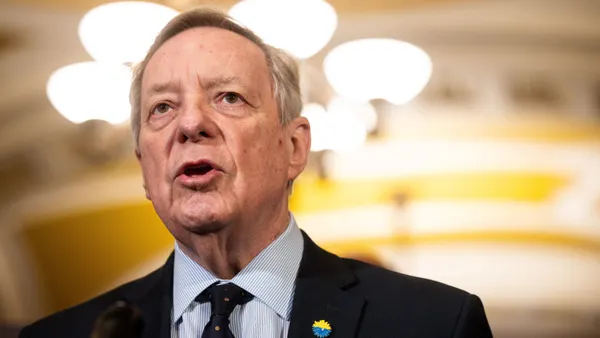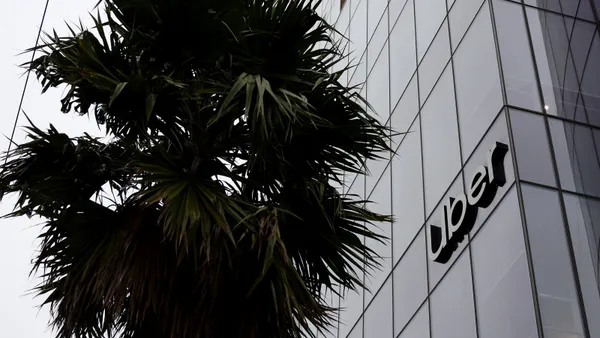Dive Brief:
- Mastercard’s former legal boss, Richard Verma, will rejoin the card processor as chief administrative officer after a two-year stint at the State Department, the card processor said Wednesday.
- The company also promoted Tim Murphy, its current CAO, to vice chairman. Both new roles are effective May 1, Mastercard said in a news release.
- Verma was Mastercard’s chief legal officer and head of global public policy for three years, departing in 2023 to become the State Department’s chief operating officer, serving as Deputy Secretary of State for Management and Resources. He was also the U.S. ambassador to India from 2014 to 2017.
Dive Insight:
Mastercard faces litigation on several fronts, including a 20-year-old dispute over merchant interchange fees – in which Visa is also a defendant – and class-action lawsuits from ATM operators regarding the surcharges they can assess. Mastercard has also confronted a civil probe by the Justice Department since March 2023 over its debit card practices.
Verma “has had a unique view on the topics impacting people and economies across the globe,” Mastercard Chief Executive Michael Miebach said in the release announcing the new roles for Murphy and Verma. “Our business and our customers will benefit from his extensive experience and leadership in many ways.”
In his administrative role, Verma will oversee Mastercard’s law, government affairs & policy; franchise; corporate security; inclusion and belonging; and transformation, risk and operations functions.
He’s likely to be busy.
Mastercard, along with Visa, faces multiple lawsuits from U.S. merchants, stretching back 20 years, alleging that the companies conspired on interchange fees and imposed other point-of-sale rules that resulted in the merchants overpaying for accepting the networks’ cards.
The company also faces similar merchant complaints in the U.K. and European Union.
Mastercard is also working with federal antitrust regulators on a civil investigation of its debit cards. In September, the Justice Department sued Visa over its debit-card processing practices, alleging the company operated an illegal monopoly in that market and suppressed potential competitors.
Regulators had been examining Mastercard over similar issues, although no case has been brought to date, and it’s unclear how the Trump administration will pursue the Visa litigation, which was brought by the Biden administration under the Sherman Act.
Visa processes more than 60% of U.S. debit card transactions, while Mastercard is “a distant second,” handling less than a quarter of those transactions, according to the government’s lawsuit. Visa also leads Mastercard in the credit card market.
The company, based in Purchase, New York, had accrued $930 million for legal liabilities as of Dec. 31, including $559 million for the U.S. interchange fees litigation, according to its annual report.
Mastercard’s inclusion efforts may also draw federal scrutiny.
As part of his second term, President Donald Trump has targeted diversity, equity and inclusion programs across the private sector, a campaign that has ensnared numerous large U.S. companies. Mastercard operates an extensive DEI program, including a senior chief inclusion officer to help direct its efforts.











